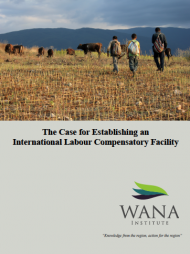-
The Case for Establishing an International Labour ...
The Case for Establishing an International Labour Compensatory Facility
Moderate migration is nominally positive for both hosts and migrants and creates mixed outcomes for countries of origin depending on their size and wealth. In small and less wealthy countries, migration can often breach a tipping point, after which benefits associated with remittances no longer outweigh the loss in intellectual capital. Such ‘brain drain’ is a serious issue in these countries, for which coordinated international action is required.
While propositions to ‘tax the brain drain’ or establish an International Labour Compensatory Facility have been circulating since the 1970s, the answer might lie in a combination of initiatives. Receiving states need to set limits through evidence-based migration policies and controls. The ways in which policies that protect labour-exporting countries can be encouraged are complex and requires further examination.
Modalities to encourage migrants to return to their countries of origin, on the part of both host countries and countries of origin need further policy analysis and discussion. Where regarded as a necessary approach to counter-balance out-migration, compensation should be approached as a fluid concept that includes several aspects, e.g. investments, development projects, social security contributions and improved market access.
Whether compensation should be directed into post-conflict economies needs further research, as well as policy measures to protect countries experiencing conflict from losing their economic and social human capital permanently through resettlement or post-migration labor market integration.

